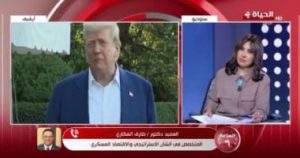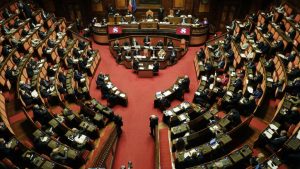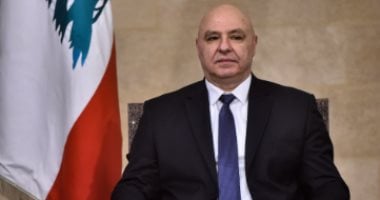Lebanon is witnessing extensive diplomatic activity as the country approaches a crucial date, August 31, when the government is scheduled to receive the Lebanese army’s executive plan to confiscate weapons, including areas controlled by Hezbollah and Palestinian camps. The process began with the collection of weapons from Palestinian camps, starting with the Burj al-Barajneh camp, as part of the first phase agreed upon by Lebanese and Palestinian officials about three months ago.
In preparation for implementing the decision, US Deputy Special Envoy to the Middle East Morgan Ortagus arrived in Beirut on Monday, while US envoy to Lebanon Tommy Barak is set to visit Beirut on Tuesday to review the latest developments and convey results of his efforts with the Israeli side regarding the cessation of shelling in southern Lebanon. This is part of the US proposal for disarmament, amid Hezbollah’s insistence on Israel proving goodwill by agreeing to stop attacks in the south.
Before his visit to Lebanon, Barak met Israeli Prime Minister Benjamin Netanyahu in Tel Aviv, requesting calm on the Lebanese front and reciprocal steps. Israel’s response remains unclear, with signs of possible compliance, especially as Israel prepares for a potentially prolonged and more violent battle in Gaza, making its leadership more cautious regarding the Lebanese front.
Observers suggest another scenario where Tel Aviv might carry out a targeted operation against Hezbollah’s administrative and organizational institutions, avoiding civilian targets, to send a strong message without provoking a full-scale response.
Netanyahu stated that Israel would withdraw from all military positions inside Lebanon after Hezbollah’s disarmament. Netanyahu’s office welcomed the Lebanese cabinet’s decision to work towards disarming Hezbollah by the end of the year.
Meanwhile, Lebanese President Michel Aoun and Prime Minister Nawaf Salam continue efforts to defuse tensions between the Shiite duo and the Baabda presidential palace, especially after Hezbollah Deputy Secretary-General Naim Qassem’s recent speech, which contained veiled threats of civil war if the state insists on disarming Hezbollah.
Hezbollah shows no readiness to relinquish its weapons, with its deputies and senior leaders affirming their commitment to their arms and deterrence doctrine.
Negotiations continue in Baabda to ease tensions with Hezbollah, aiming to win over Parliament Speaker Nabih Berri to persuade Hezbollah to change its stance or show flexibility.
On the American interest in Lebanon, Prime Minister Salam received US Congress members Darren Lahoud and Steve Cohen, accompanied by US Ambassador to Beirut Lisa Johnson and delegation. Lahoud praised the Lebanese government’s efforts to extend state authority and confine weapons to the state, alongside ongoing judicial and financial reforms, which help restore international confidence in Lebanon. He emphasized the Lebanese army’s crucial role in security and stability and his continuous efforts in Congress to ensure ongoing support for the army. They also discussed the importance of renewing UNIFIL’s mandate to support the Lebanese army’s deployment in the south.
Salam stressed the necessity for Israel to respect Lebanon’s sovereignty, withdraw from occupied territories, allowing the Lebanese army to complete its deployment in the south, stop hostile acts, and release prisoners to pave the way for reconstruction and recovery. He affirmed that the Lebanese army belongs to all Lebanese and that supporting and equipping it is fundamental to enhancing security and stability.
From Burj al-Barajneh camp, Lebanese authorities began confiscating weapons inside Palestinian camps in Beirut as the first phase, which will continue over a defined period through weapon deposits with the Lebanese army.
There are expectations of resistance from some factions against handing over weapons, but many anticipate compliance, especially since the largest faction, Fatah, has started disarming, which others are expected to follow. Factions not loyal to the Palestinian president face a fait accompli after Fatah began delivering weapons.
On August 7, the Lebanese cabinet decided to confine weapons to the state and tasked the army with preparing a plan to complete this during the current month and implement it before the end of 2025.













Recommended for you
Exhibition City Completes About 80% of Preparations for the Damascus International Fair Launch
Talib Al-Rifai Chronicles Kuwaiti Art Heritage in "Doukhi.. Tasaseem Al-Saba"
Unified Admission Applications Start Tuesday with 640 Students to be Accepted in Medicine
Egypt Post: We Have Over 10 Million Customers in Savings Accounts and Offer Daily, Monthly, and Annual Returns
Al-Jaghbeer: The Industrial Sector Leads Economic Growth
His Highness Sheikh Isa bin Salman bin Hamad Al Khalifa Receives the United States Ambassador to the Kingdom of Bahrain